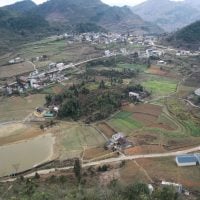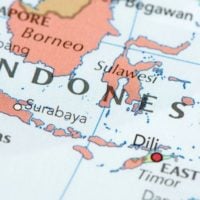Grants play a pivotal role in the landscape of innovative education projects, serving as a lifeline for many non-governmental organizations (NGOs) striving to implement transformative educational initiatives. These funds enable NGOs to develop and execute programs that address pressing educational challenges, such as access to quality education, curriculum development, and teacher training. By securing grants, organizations can not only enhance their operational capacity but also foster creativity and innovation in their approaches to education.
This financial support allows NGOs to experiment with new methodologies, technologies, and pedagogical strategies that can lead to significant improvements in student outcomes. Moreover, grants often come with the added benefit of credibility. When an NGO receives funding from a reputable source, it signals to stakeholders—such as community members, potential partners, and other funders—that the organization is recognized for its commitment to educational excellence.
This recognition can open doors to additional funding opportunities and collaborations, creating a ripple effect that amplifies the impact of the initial grant. In essence, grants are not merely financial resources; they are catalysts for change that empower NGOs to push the boundaries of what is possible in education.
Identifying Potential Funding Sources for NGOs
Identifying potential funding sources is a critical step for NGOs seeking to finance innovative education projects. The landscape of funding is vast and varied, encompassing government grants, private foundations, corporate sponsorships, and crowdfunding platforms. Each of these sources has its own set of criteria, application processes, and funding priorities.
Therefore, it is essential for NGOs to conduct thorough research to align their project goals with the interests of potential funders. Online databases such as GrantStation and Foundation Center can be invaluable tools in this regard, providing comprehensive listings of available grants and detailed information about each funder’s mission and funding history. In addition to traditional funding sources, NGOs should also consider tapping into local businesses and community organizations.
Many companies have corporate social responsibility (CSR) initiatives that focus on supporting education within their communities. Building relationships with these entities can lead to mutually beneficial partnerships where businesses provide financial support or in-kind contributions in exchange for positive community engagement and visibility. Furthermore, exploring international funding opportunities through organizations like UNESCO or the World Bank can also yield significant resources for innovative education projects that have a global impact.
Navigating the Grant Application Process
Navigating the grant application process can be daunting, especially for NGOs that are new to securing funding. The first step is to carefully read the grant guidelines and eligibility requirements provided by the funder. Understanding these parameters is crucial, as submitting an application that does not meet the funder’s criteria can result in immediate disqualification.
Once familiar with the requirements, NGOs should develop a timeline that outlines key milestones in the application process, including deadlines for submission and internal review periods. Collaboration is key during this phase. Engaging team members from various departments—such as finance, program development, and communications—can enhance the quality of the application.
Each member brings unique insights that can strengthen the proposal’s overall narrative. Additionally, seeking feedback from peers or mentors who have experience with grant writing can provide valuable perspectives and help identify areas for improvement. By fostering a collaborative environment, NGOs can create a comprehensive application that effectively communicates their vision and capacity to execute the proposed project.
Crafting a Compelling Proposal for Innovative Education Projects
Crafting a compelling proposal is an art that requires clarity, passion, and strategic thinking. A successful proposal begins with a strong executive summary that succinctly outlines the project’s objectives, target population, and anticipated outcomes. This section should grab the reader’s attention and convey the urgency of the need being addressed.
Following the executive summary, it is essential to provide a detailed description of the project, including its goals, methodologies, and timeline. Funders want to see a well-thought-out plan that demonstrates how the project will be implemented effectively. In addition to outlining the project details, it is crucial to incorporate data and evidence that support the proposed approach.
This could include statistics on educational disparities in the target area or case studies from similar successful initiatives. By grounding the proposal in research and real-world examples, NGOs can build credibility and demonstrate their understanding of the challenges at hand. Furthermore, including testimonials from beneficiaries or community leaders can add a personal touch that resonates with funders on an emotional level.
Demonstrating Impact and Sustainability in Grant Applications
Demonstrating impact and sustainability is a critical component of any grant application for innovative education projects. Funders are increasingly interested in understanding not only what an organization plans to achieve but also how those achievements will be sustained over time. To effectively convey this information, NGOs should outline clear metrics for success that will be used to evaluate the project’s impact.
This could include quantitative measures such as improved test scores or graduation rates, as well as qualitative assessments like participant feedback or community engagement levels. Sustainability plans should address how the project will continue beyond the initial funding period. This might involve strategies for generating ongoing revenue through partnerships, community involvement, or scaling successful components of the project.
Funders appreciate when organizations demonstrate foresight in planning for long-term success rather than relying solely on grant funding. By articulating a clear vision for sustainability, NGOs can instill confidence in funders that their investment will yield lasting benefits for the community.
Building Relationships with Funders and Donors
Building relationships with funders and donors is essential for NGOs seeking long-term support for their innovative education projects. Establishing rapport goes beyond simply submitting grant applications; it involves ongoing communication and engagement with potential funders throughout the year. Regular updates on project progress, success stories, and challenges faced can help keep funders informed and invested in the organization’s mission.
This transparency fosters trust and demonstrates accountability. Networking at conferences, workshops, and community events can also provide valuable opportunities to connect with potential funders face-to-face. Engaging in conversations about shared interests in education can lead to fruitful partnerships that extend beyond financial support.
Additionally, NGOs should consider inviting funders to visit project sites or participate in events related to their initiatives. These experiences allow funders to witness firsthand the impact of their contributions and deepen their commitment to supporting the organization.
Managing and Reporting on Grant Funds for Education Projects
Effective management of grant funds is crucial for ensuring compliance with funder requirements and maximizing the impact of educational initiatives. NGOs must establish robust financial management systems that track expenditures against budgeted amounts while maintaining transparency throughout the process. Regular financial reporting not only helps organizations stay accountable but also builds trust with funders who expect responsible stewardship of their resources.
Reporting on grant funds typically involves providing updates on both financial performance and project outcomes. Many funders require periodic reports detailing how funds were utilized and what progress has been made toward achieving project goals. NGOs should develop a reporting schedule that aligns with funder expectations while also allowing time for thorough analysis of data collected during implementation.
By presenting clear and concise reports that highlight successes as well as lessons learned, organizations can demonstrate their commitment to continuous improvement and accountability.
Overcoming Common Challenges in Securing Grants for Education Initiatives
Securing grants for education initiatives often comes with its own set of challenges that NGOs must navigate effectively. One common hurdle is intense competition among organizations vying for limited funding resources. To stand out in a crowded field, NGOs must clearly articulate their unique value proposition—what sets them apart from others working on similar issues—and how their approach addresses specific community needs.
Another challenge is adapting to changing funding landscapes as priorities shift among government agencies and private foundations. Staying informed about trends in education funding can help organizations pivot their strategies accordingly. Engaging in continuous learning through professional development opportunities or networking with other NGOs can provide insights into emerging best practices in grant writing and fundraising strategies.
In conclusion, while securing grants for innovative education projects may present challenges, it also offers immense opportunities for NGOs committed to making a difference in their communities. By understanding the importance of grants, identifying potential funding sources, navigating the application process effectively, crafting compelling proposals, demonstrating impact and sustainability, building relationships with funders, managing funds responsibly, and overcoming common challenges, organizations can position themselves for success in securing vital resources needed to drive educational innovation forward.
For NGOs seeking financial support for innovative education projects, exploring various grant opportunities is crucial. One such opportunity is the Free Rivers Fund Regular Grants Program 2025, which provides funding for projects that aim to protect and restore river ecosystems. While this program primarily focuses on environmental initiatives, it highlights the importance of interdisciplinary approaches that can be applied to educational projects as well. By integrating environmental education into their programs, NGOs can enhance their proposals and increase their chances of securing funding. For more information on this grant, you can visit the Free Rivers Fund Regular Grants Program 2025.









































